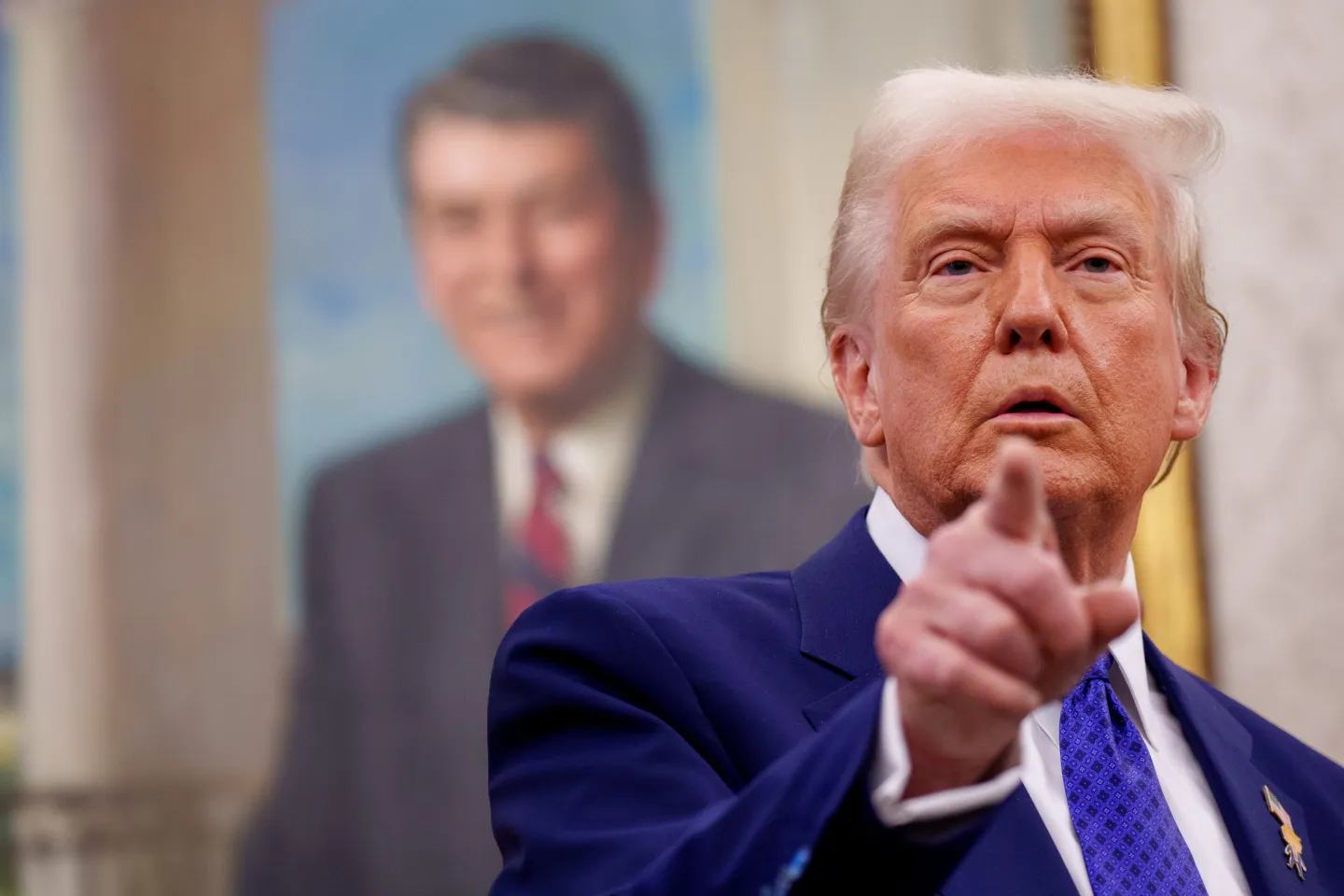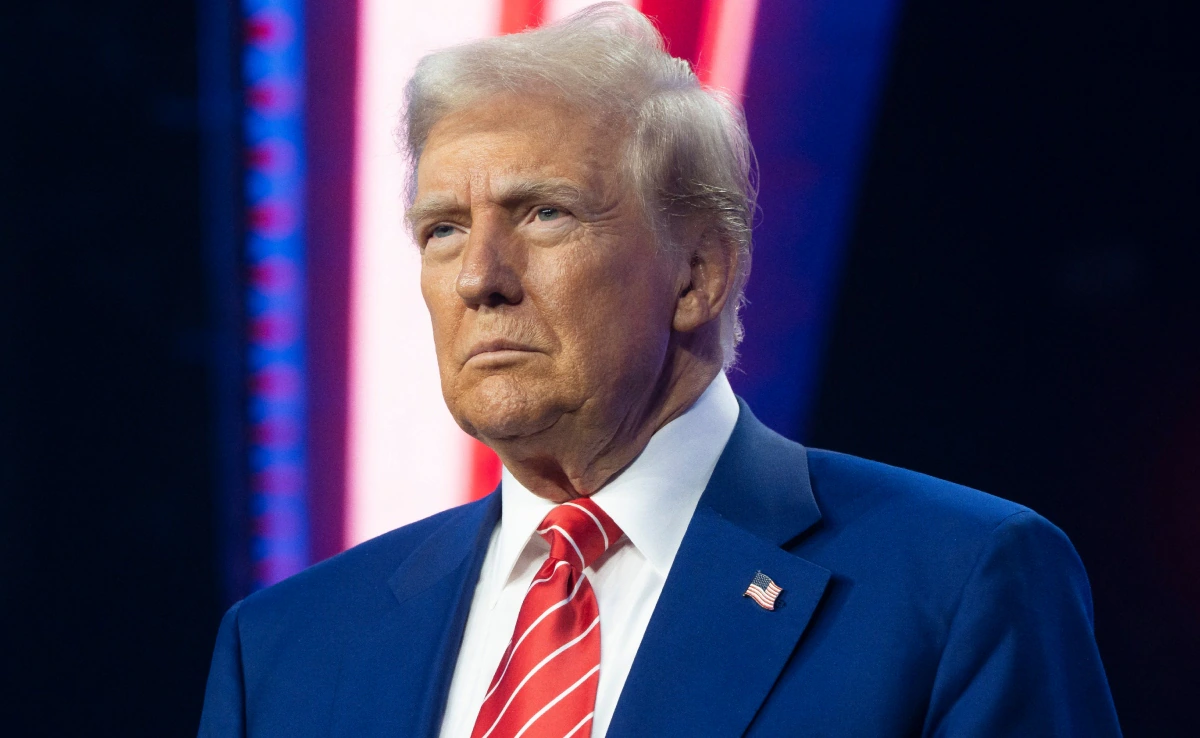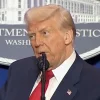A cracked windscreen forced U.S. Secretary of State Marco Rubio to make a rapid U-turn mid-flight while en route to the Munich Security Conference, forcing his plane to return an hour after takeoff.
America’s top diplomat, along with senior officials and the traveling press, returned to Andrews Air Force Base near Washington, D.C., on Thursday night.
However, despite the mid-air setback, the spotlight had already shifted elsewhere. In Europe, U.S. Secretary of Defense Pete Hegseth had sent shockwaves through America’s allies with a speech outlining what many saw as major concessions Ukraine might have to accept in a peace deal brokered by President Trump with Russia.
Hegseth described as “unrealistic” Ukraine’s goal of reclaiming its sovereign territory occupied by Russia, as well as its demand for NATO membership. He further stated that European, not U.S., troops should be responsible for maintaining peace.
The remarks sparked backlash, including from Republicans in Washington, who criticized the speech for undermining Ukraine’s negotiating position before talks had even begun. Some argued it amounted to a U.S. capitulation to Russian President Vladimir Putin.
“It’s certainly an innovative approach to a negotiation to make very major concessions even before they have started,” said former Swedish Prime Minister Carl Bildt, co-chair of the European Council on Foreign Relations, a think tank.
EPA: U.S. Secretary of Defense Pete Hegseth in Poland, 15 February. Hegseth raised eyebrows even among Republicans by appearing to make significant concessions to Russia.
The Fallout and Clarifications
The following day, Hegseth walked back some of his statements, insisting that all options remained on the table for President Trump to use as leverage in negotiations between Putin and Ukrainian President Volodymyr Zelensky.
“What he decides to allow or not allow is at the purview of the leader of the free world, President Trump,” Hegseth said. However, he defended his comments, stating he had been “simply pointing out realism” and rejecting claims that he had made premature concessions to Moscow.
Meanwhile, Rubio’s delayed arrival in Munich allowed his team to brief officials on his own priorities for the trip.
The United States, they emphasized, would work toward a “just and lasting peace” with European nations taking the lead in shaping a “durable security framework.”
European leaders are set to meet in Paris on Monday for urgent discussions to ensure their governments remain central players in any Ukraine peace talks.
Notably, Rubio’s position did not include the kind of limitations for Ukraine that Hegseth had suggested. Adding another layer of complexity, Vice President JD Vance, speaking in Munich, stated that the U.S. could use “military tools of leverage” to pressure Russia into a deal—directly contradicting Hegseth’s earlier assertion that no U.S. troops would be deployed to Ukraine.
Trump Responds
Later, in the Oval Office, President Trump was confronted with the fallout from Hegseth’s remarks. He was also asked about a Republican senator’s criticism, which described the speech as a “rookie mistake,” comparing it to rhetoric one might expect from a pro-Putin commentator.
Was Trump aware in advance of what Hegseth was going to say? “Generally speaking, yeah, generally speaking I was,” Trump replied. “I’ll speak to Pete, I’ll find out,” he added.

The Uncertainty in Trump’s Foreign Policy
The three days of back-and-forth provided an early look into Trump’s evolving stance on one of the most pressing issues he faces—Russia’s full-scale invasion of Ukraine and his promise to end the war. It also revealed how his administration is developing and communicating its foreign policy.
On substance, Hegseth’s speech—combined with Trump’s lengthy statement about a seemingly warm phone call with Putin to initiate peace talks—sent ripples of concern through European capitals, despite Hegseth’s later attempts to reframe his remarks.
“Any quick fix is a dirty deal,” warned European Union foreign policy chief Kaja Kallas, referring to concerns that a U.S.-led deal with Russia might sideline Ukraine’s interests.
Another key question is how Trump’s foreign policy is being communicated. Events in Munich suggested that senior officials were attempting to interpret and relay Trump’s positions, but their efforts led to conflicting and sometimes controversial statements—some of which were later toned down or reversed.
It remains unclear whether this inconsistency stems from a new, still-uncoordinated administration refining its messaging or whether it is a deliberate strategy, with Trump allowing his officials some flexibility in rhetoric as long as they remain loyal to his ultimate decisions.
Trump’s first term was marked by high-profile dismissals and resignations of top officials who contradicted or disagreed with him, including three national security advisers, two defense secretaries, and a secretary of state.
This time, his appointees appear more inclined to show loyalty. Pete Hegseth—who had no prior experience managing a military, government, or federal agency—was a Fox News weekend host and former National Guard major known for aligning closely with Trump’s ideology.
His appointment was controversial, barely passing the Senate confirmation process after three Republican senators voted against him, resulting in a 50-50 tie that Vice President JD Vance had to break.
Strategic Ambiguity or Risky Chaos?
Trump recently stated he was “OK” with the idea of removing Ukraine’s NATO membership bid from peace negotiations, calling it “not practical.”
Hegseth’s remarks were not inconsistent with Trump’s position; rather, they reinforced it before an audience anxious about Ukraine’s ability to negotiate from a position of strength.
The challenge, however, is that U.S. foreign policy under Trump is still being defined, and uncertainty appears to be a feature rather than a flaw.
Some analysts believe Trump is deliberately employing the “madman” theory of foreign relations, a strategy often attributed to former Republican President Richard Nixon.
This theory suggests that projecting unpredictability can keep allies close while pressuring adversaries. If that is the case, the seemingly contradictory statements from his officials might not be accidental—they could be part of a broader strategic approach that keeps others guessing.
However, as the name of this theory implies, it also carries risks—mistakes, miscalculations, and unintended consequences in an already volatile global landscape.
Trump’s recent proposals for Gaza—suggesting the depopulation of Palestinian territories to create a “Riviera of the Middle East” under U.S. ownership—were similarly riddled with conflicting and controversial messaging.
While his officials later attempted to frame it as only a “temporary relocation,” Trump later doubled down, insisting it would be “permanent” with no right of return.
Rubio’s Overshadowed Arrival
Meanwhile, Rubio—who wants the State Department to be the most influential voice in Trump’s foreign policy decision-making—found himself overshadowed at Munich.
By the time his replacement plane finally touched down in Europe—this time with an intact windscreen but without the press pool—most headlines had already moved on.


